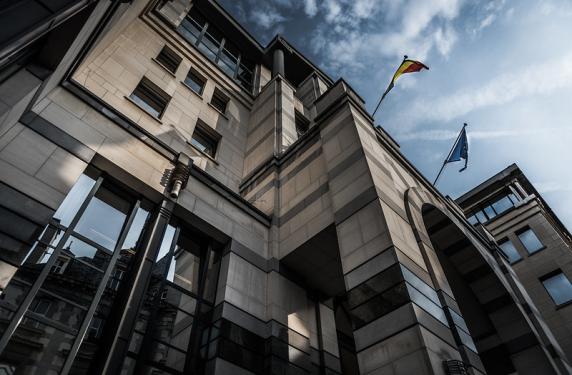
On this page you will find answers to your more detailed questions about the legalisation of documents.
In order for the Legalisation Service of the FPS Foreign Affairs to issue the e-apostilles and e-legalisations, a special elegalisation website has been created, which is only accessible to accredited partners of the FPS Foreign Affairs (such as municipalities, notaries, other fpss,…) and not to private citizens.
Two procedures are possible for lodging an e-apostille application
The recognised accredited partner (municipalities, notaries. ) Submits the application via the elegalisation website
Payment is made directly online and the 'link' to the document with apostille is sent directly to the applicant by email. The processing time of the applications is short (within 48 hours normally) and does not involve any additional costs. The entire procedure can be done online. You do not have to go in person to the office of the Legalisation Service of the FPS Foreign Affairs.
The apostille can be consulted on and downloaded from the website LegalWeb by using the number of the apostille and the date on which it was affixed.
If your document needs to be legalised, it must also be legalised by the embassy or consulate of the country of destination.
So please check first whether the foreign embassy or consulate can accept the electronic legalisation.

On this page you will find the addresses of Belgian embassies and consulates abroad, as well as the addresses of foreign embassi.